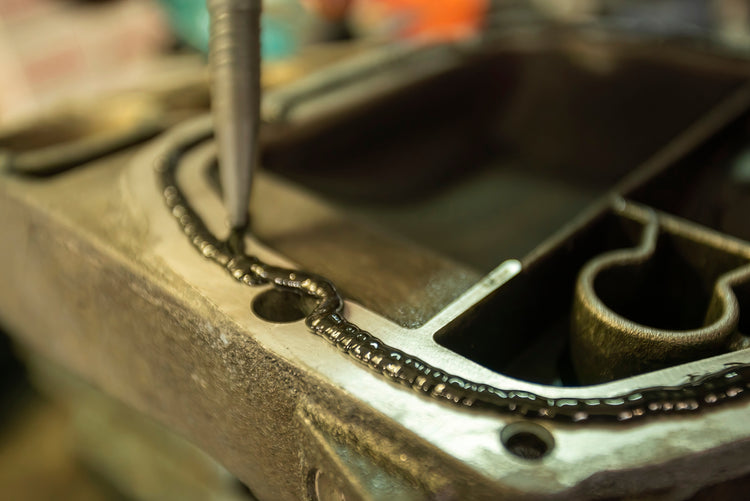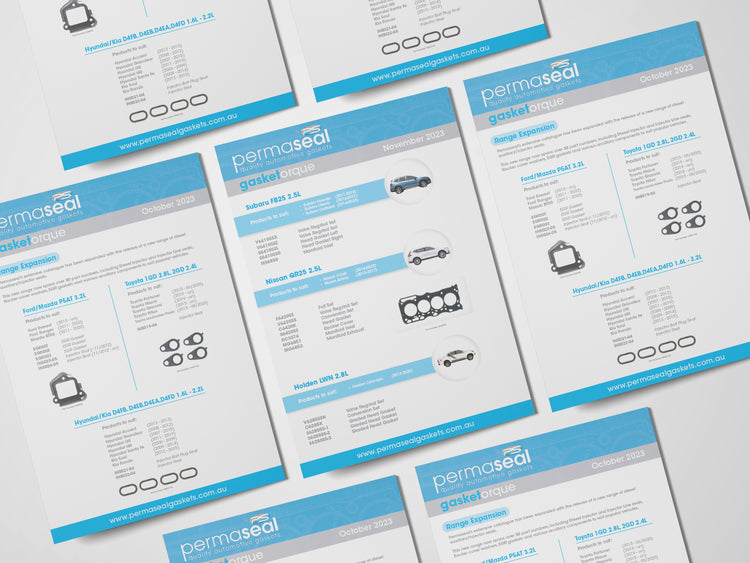
Chemical Sealants
Most Permaseal head gaskets are manufactured with a soft fibrous or graphite facing material. These facing materials are designed to conform to minor irregularities in the head and block surfaces. Also, a common component to these gaskets is an impervious silicone coating, a key characteristic in the ability of the gaskets to cold seal.
Use of chemical sealants can affect the head gasket’s ability to:
- Cold-seal, the ability of the gasket to seal coolant until the engine is first started.
- Cold-flow, the characteristics of the coating material to creep as the gasket is loaded (clamped), to seal small scratches and imperfections on the head and block surfaces.
- Reduce the shearing forces that are applied to the gasket surfaces by thermal expansion of the cylinder head and block.
- The added thickness of an applied sealant on a head gasket can cause uneven loading and or a loss of torque retention.
Some sealants may react with the gasket’s silicone coating, causing the gasket to deteriorate and in some cases can cause the deterioration of the chemical sealer itself. The use of chemical sealant on moulded rubber gaskets is not recommended. When sealants are used in conjunction with rubber products, as load is applied, the sealant allows the gasket to extrude from its desired position, allowing for leakage. It gives similar effects to over tightening.
Please note: As per our Tec-Tips included in each set, "No sealants are necessary or recommended when using Permaseal head gaskets."


